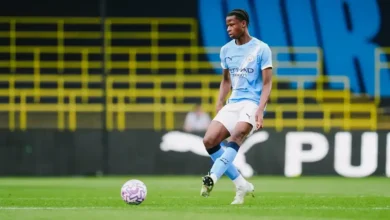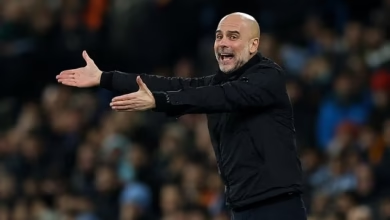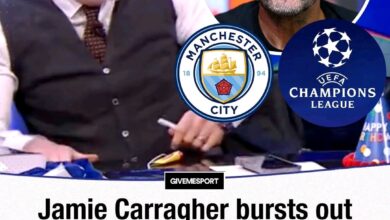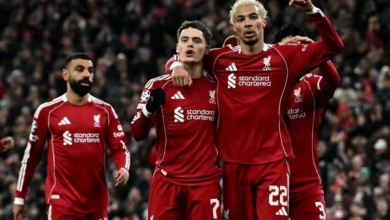Didier Deschamps Slammed For ‘Disrespectful’ Hugo Ekitike Act During France Game
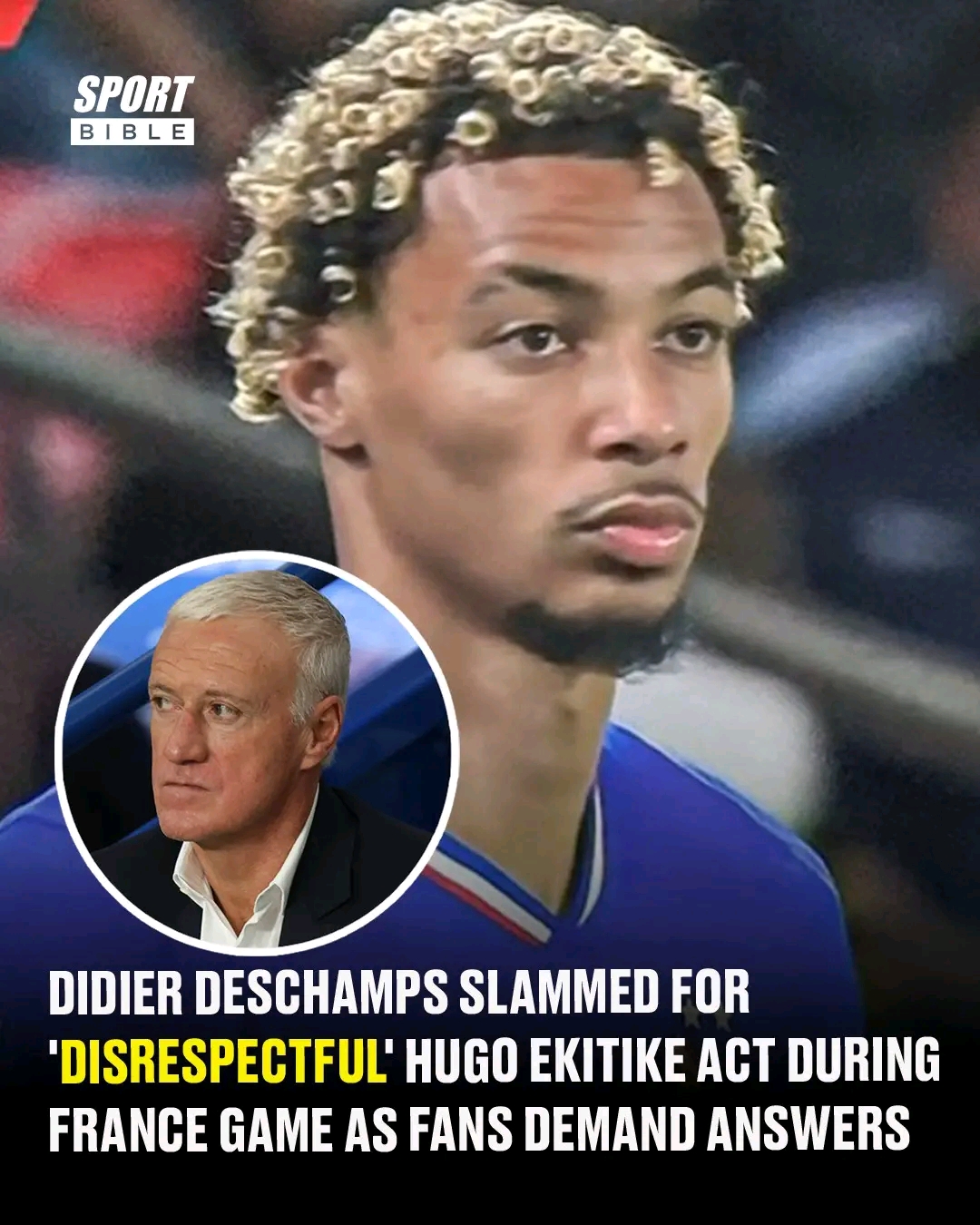
France fans are used to drama when it comes to their national team, but what happened on Tuesday night at the Parc des Princes during the World Cup qualifier against Iceland has sparked a storm of debate across social media and the football world. The spotlight is not on Kylian Mbappé’s stunning equaliser, nor on Bradley Barcola’s composed winner. Instead, all eyes are on Didier Deschamps and his treatment of one young striker who has waited his whole life for this moment: Hugo Ekitike.
The 22-year-old Liverpool forward was handed his second France cap, but in a way that has divided opinion and drawn accusations of disrespect. In the 96th minute, with France clinging to a 2-1 lead, Deschamps called Ekitike from the bench. The instructions were simple: go up front, hold the ball, waste time, and see out the victory. The crowd cheered as he jogged onto the pitch. His family watching proudly from the stands must have felt their hearts swell. But then, almost immediately, the referee blew the final whistle. Ekitike had not even touched the ball. His second international appearance ended without a single kick.
For some fans, this was cruel. Social media exploded with posts calling Deschamps “disrespectful.” One fan wrote bluntly: “Very disrespectful.” Another added: “Can’t wait till he leaves.” A third went even further, saying: “I would’ve refused to come on.” The anger was not really about tactics, but about symbolism. After years of waiting to be called up, after dreaming of wearing the France shirt, after finally breaking into the squad, this was how his chance played out—standing on the grass for seconds before the whistle, reduced to a late pawn in Deschamps’ game of control.
Yet not everyone saw it that way. Others pointed out that a cap is a cap, no matter how short. “Still counts as a cap,” one fan wrote. “That’s now two caps for Hugo from his first ever call-up to the senior team.” Another argued that it was simply good game management. “People get subbed on late in games all the time. It’s not that deep.” In this view, Ekitike’s pride should not be diminished. He is part of Les Bleus now, officially and forever.
But football is emotional, and symbolism matters. For Ekitike, this moment was supposed to be about more than statistics. He has just completed a huge move to Liverpool in the summer, leaving Paris Saint-Germain behind, determined to prove himself in the Premier League. He is young, ambitious, and full of confidence. His call-up to the national team during this international break felt like a reward for his persistence. Against Ukraine days earlier, he made his debut. Against Iceland, he was hoping for minutes to show what he could do. Instead, his cap became a story of frustration.
France, to their credit, won the game. It was not straightforward. Iceland stunned the Parc des Princes crowd when Andri Gudjohnsen, son of Chelsea legend Eidur Gudjohnsen, gave them a surprise lead in the 21st minute. The French players looked shocked. But Mbappé, as he so often does, dragged them back with a powerful equaliser before half-time, assisted by Aurelien Tchouameni. Then Barcola scored the winner early in the second half, settling nerves. From there, France managed the game. Deschamps made substitutions, tightened the midfield, and controlled possession. By the time stoppage time came, the mission was survival, not entertainment. That was when he looked to Ekitike.
The question many are asking now is: why him? Why bring on a young striker in that moment, only to deny him a real opportunity to play? Was it simply tactical—fresh legs to press Iceland’s defenders? Was it symbolic, a way of giving him another official appearance? Or was it, as some critics suggest, a thoughtless move that showed a lack of respect for the player’s journey?
Deschamps is not new to criticism. As France’s manager since 2012, he has weathered endless storms. He has won a World Cup, reached another final, lifted a Nations League, and yet, he is often portrayed as cautious, conservative, even cold. Critics argue that he prioritises control over creativity, loyalty over experimentation. His handling of young players has always been a point of debate. For some, what happened with Ekitike is just another example of Deschamps being too rigid, too dismissive of emotion.
But for others, this is a storm in a teacup. They point out that players get subbed on late all the time. Many greats, from Thierry Henry to Karim Benzema, have started their international journeys with fleeting appearances. Every cap counts, and no matter how brief, being part of the squad is an honour. Ekitike, they argue, should be proud, not upset.
Still, the frustration lingers because of the context. Ekitike has worked incredibly hard to reach this level. At PSG, he struggled for consistent game time, overshadowed by the superstar names around him. He was criticised, doubted, sometimes even mocked. But he never lost belief. His move to Liverpool this summer was seen as a fresh start, a chance to rebuild his reputation under Arne Slot in the Premier League. And already, in pre-season and early matches, he has shown flashes of brilliance. Fans at Anfield are excited about what he can become. That is why this international break mattered so much. He wanted to prove himself not just to France, but to the world.
Instead, he is at the centre of a controversy he did not ask for. To his credit, Ekitike has not complained publicly. He has kept quiet, professional, and respectful. But fans speak for him, and they feel protective of their new star.
The debate also touches on something deeper: the meaning of international football. For established stars like Mbappé, Griezmann, or Varane, another cap is just another chapter in a long book. For a 22-year-old like Ekitike, every minute is precious, every chance is priceless. Being sent on in the 96th minute with no touch feels hollow. It highlights the gap between stars who take their place for granted and young hopefuls who cling to every second.
It is worth remembering that Deschamps’ time as France manager is running out. He will leave his role after the 2026 World Cup, ending more than a decade in charge. Some fans are already looking forward to a new era, hoping for a coach who will embrace youth more fully, who will give players like Ekitike genuine opportunities. The anger at this substitution is not just about one moment, but about years of built-up frustration with Deschamps’ style.
Yet football is also unforgiving in its demands. Deschamps’ job is not to please individuals, but to win games. Against Iceland, protecting a 2-1 lead mattered more than Ekitike’s dreams. From a cold tactical perspective, the substitution made sense. Fresh legs to waste seconds, cover defenders, and occupy opposition players. It worked—France won. But the human side of football does not always care about tactical logic. Fans want stories, emotions, and respect. They wanted Ekitike to taste the ball, to feel part of the victory.
This debate will not fade quickly. For days, fans will argue online about whether Deschamps was disrespectful or simply professional. Pundits will weigh in. Liverpool fans will defend their striker. French journalists will dissect the decision. And through it all, Ekitike will remain calm, knowing that his time will come.
Because in truth, this is just the beginning for him. He is 22. He has broken into the France squad. He has moved to one of the biggest clubs in England. His journey is only starting. This controversy may sting now, but it will soon be forgotten if he keeps scoring, keeps improving, keeps believing. One day, he may look back at this night and smile. What felt like disrespect may become motivation, fuel for the fire that drives him to greatness.
For now, though, the conversation belongs to the fans. To them, the image of Ekitike jogging on in the 96th minute, only to hear the final whistle seconds later, is unforgettable. It is football at its most cruel and ironic. The boy who waited so long for his chance, given only a taste, not a bite. And in that irony lies the drama that makes football so addictive, so emotional, so endlessly debated.







